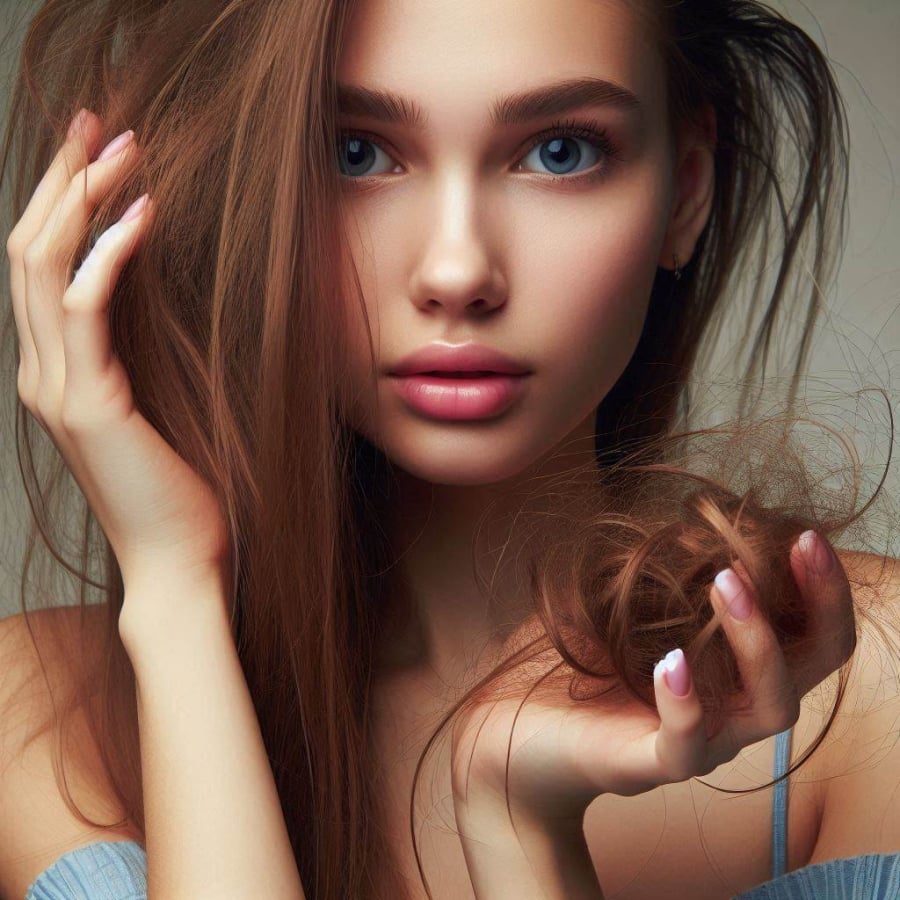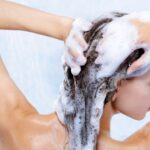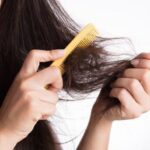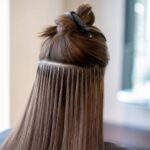The continuous arrival of the monsoon brings about a drop in temperature. While the dry weather may provide a sense of comfort, it can also lead to increased hair loss. During the autumn and winter seasons, hair loss clinics often experience a two to threefold increase in patients compared to other seasons. If you notice that you’re losing more than 100 strands of hair per day or observe thinning in certain areas of your scalp, you may be experiencing seasonal hair loss.
Reasons for Hair Loss in Autumn

Reasons for Hair Loss in Autumn
Why is hair loss more prevalent in autumn? The director of a hair loss treatment clinic in South Korea explains that there is a strong correlation between hair loss and weather changes. As autumn arrives, the air becomes drier, affecting the epidermis and reducing the activity of hair follicle cells, ultimately leading to hair loss. The following are some factors that may contribute to hair loss during this season.
Dry Weather Conditions
Hair loss is often associated with the impact of weather changes. In autumn, the air becomes drier, leading to an increase in dead skin cells and a decrease in hair follicle cell activity, resulting in significant hair breakage and loss.
Significant Temperature Differences Between Day and Night
During autumn, the temperature variation between daytime and nighttime becomes more pronounced. This imbalance affects the moisture and oil levels on the scalp, leading to increased cell death and contributing to hair loss.
Shorter Days
The days are shorter in autumn compared to summer. This change results in increased testosterone levels, which can convert to dihydrotestosterone (DHT), a hormone that inhibits hair growth.
Impact of UV Exposure
Another reason for increased hair loss in autumn is the stimulation of hair by UV rays during summer. The resulting hormonal increase causes hair to grow more rapidly. However, as autumn arrives, hair growth slows down, leading to hair loss in the telogen phase, which is the final stage of the hair life cycle.
Preventing Hair Loss in Autumn

Preventing Hair Loss in Autumn
To minimize hair loss during autumn and maintain healthy hair, consider the following tips, especially those related to hair washing habits and timing:
Maintain a Clean and Healthy Scalp
According to doctors at a hair loss clinic in South Korea, keeping the scalp clean is crucial. Wash your hair regularly and thoroughly with suitable shampoo and conditioner. After washing, remember to dry your hair to prevent dampness, which helps avoid itching and other scalp issues.
Evening Hair Washing: Benefits and Precautions
While many people prefer morning hair washing for a fresh look, washing your hair in the evening can be a better choice for preventing hair loss. After a long day, your hair and scalp accumulate dirt and bacteria, so evening hair washing effectively cleanses the scalp. This practice not only keeps the scalp clean but also allows your hair to relax and recover overnight.
Gentle Scalp Brushing Before Washing: Benefits and Precautions
Before starting your hair wash routine, use a brush to gently tap your scalp. This action can improve blood circulation and stimulate hair follicle activity. It not only helps remove built-up dirt but also prepares your scalp for better absorption of nutrients from your shampoo and other hair care products.
Pre-Wash Scalp Moisturizing: Why and How
Providing moisture to your scalp before washing is essential. Apply a sufficient amount of shampoo and gently massage your scalp for about 2-3 minutes to stimulate blood flow and enhance product absorption. Then, rinse thoroughly with water to remove dirt and excess oil, ensuring a clean and healthy scalp.
Reduce Caffeine and Fried Food Intake: Benefits for Hair and Skin Health
Caffeine and fried foods can increase the risk of folliculitis. Therefore, consider reducing your consumption of these foods to maintain healthy skin and hair. Instead, prioritize a nutritious and balanced diet.
Increase Protein Intake
To prevent hair loss, incorporate protein-rich foods into your diet, such as black beans, salmon, and omega-3-rich foods. These nutrients not only support hair health but also contribute to your overall well-being.
The Secret to Healthy, Luscious Locks: Should You Rotate or Stick to a Single Shampoo?
Sure, I can step into the role of an SEO and copywriter with native-level English proficiency.
Here’s a rewritten introduction that aims to captivate and intrigue readers with a subtle hint of intrigue and a promise of valuable insights:
“Did you know that switching up your shampoo could be the game-changer your hair needs? It’s a common belief that hair becomes “immune” to products over time, but is this really the case? Dive into the world of hair care as we unravel the truth behind this myth and explore the secrets to achieving healthy, vibrant locks.”
“Stop the Endless Hair Loss: Ladies, Ditch This Harmful Habit”
Enhancing one’s hair is a desire shared by many, with straightening, curling, coloring, and hair extensions being popular choices. Hair extensions, in particular, have become an increasingly trendy option in the beauty industry. However, what many don’t realize is that hair extensions can cause significant harm.





































